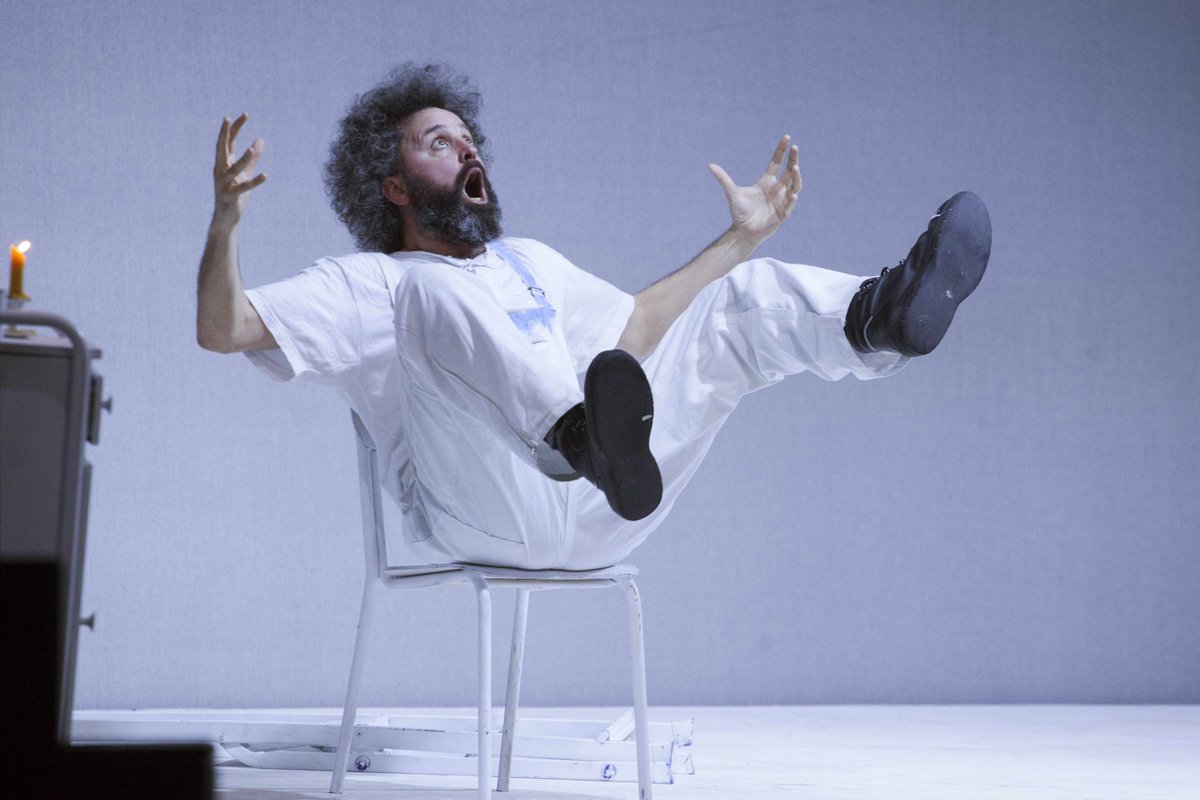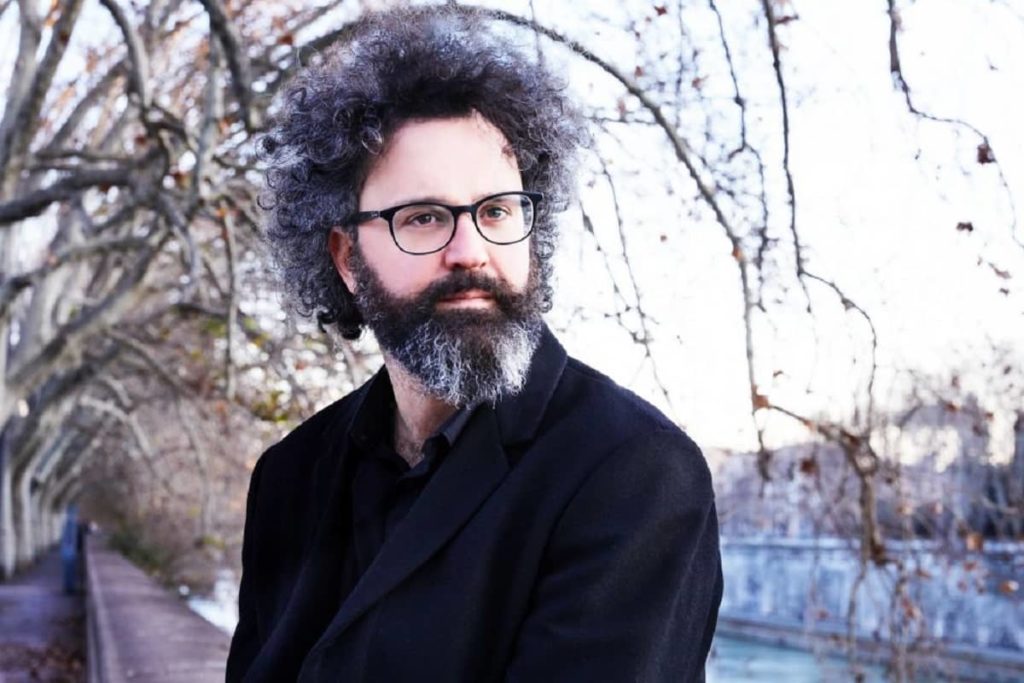In the interview, singer and writer Simone Cristicchi explains us why you turn stronger when you’re weak.
The only term that can be used to describe Simone Cristicchi is “artist” in its broadest and deepest sense. He writes, acts in theatres, directs documentaries and sings. In other words, he is very sensitive to beauty and the various ways of expressing it. His life should have taken a different path: he was meant to draw comics. Indeed, a renowned magazine offered him a contract, but Simone declined and instead went to University, where he studied history. During the period in which he was committed as a conscientious objector, he attended some mental health centres. That kind of experience struck him so much that he wrote a book about it (“Centro di igiene mentale”), as well as a theatre play (C.I.M.) and a documentary (Dall’altra parte del cancello).
You have always had a special attention to the “other”, represented by those who are outside the box. Is it because you felt like being “different” compared to the others in the first instance?
Indeed, but I realized it only after a long time. I lost my father when I was twelve and I cut myself out of the world, because I felt that I was missing the father figure I was very fond of. I found notebooks where I used to write down everything. Art really saved my life. I could have been forever confined under the four walls of my home, but my suffering allowed me to share and overcome this pain turning it into beauty.

Now you’re on tour with “Manuale di volo per uomo”where the set is an empty room. Is it a coincidence, or does it recall the room where you locked yourself during your teenage years?
It might actually be similar, but it’s very symbolic. It actually represents our mind, which can be a place of imprisonment. A diabolical place and at the same time a wonderful tool that slowly fills up and embellishes, giving space to what’s deep inside.
In this show you interpret a 40-year-old man-child who is amazed by everything, even the most banal things. Is there anything that still amazes you?
Everything, although I believe that amazement should be nurtured. We need our minds to be back to the priorities: why are we in this world? The answer is: to improve ourselves and the aim of this show is to bring us back to the truth, to a non-artificial life. We just put on an act and wear masks – this is what Pirandello taught us! In Sanremo, for example, I showed that I had taken it off and I was so much just me that it moved me. I could have not presented that song (“Abbi cura di me”) if I was not totally myself.
The song you presented at the festival is part of a collection of your achievements and flat-out proclamation of your weakness. Why is it so hard to acknowledge it?
There is this obsession of showing to be stronger than you really are. It seems as if men have no limits of any kind, but the real happiness lies in admitting ones uncertainties. We become stronger when we are weak, because we recognize our vulnerability by proofing that we are authentic. In my opinion, one of the most beautiful things is to see a man crying. Not to be sadists, but because it means to lay bare and show that we are human, that we feel deep pain and joy, and that we are able to be touched when we a faced with this that strike us, for better or for worse.
As director of the Teatro Stabile in L’Aquila, what’s your analysis ten years after the earthquake?
The situation is quite difficult; we still do not have a fixed base. The municipal theatre is in restoration stage and will probably be ready in two years’ time. To me it’s like a flower growing in old asphalt, as it germinates despite the difficulties. In L’Aquila life continues thanks to the young people who study there and are like a dandelion that grows everywhere.
How and with whom would you like to take a coffee?
I’ve been corresponding by letter with a cloistered nun, whom I got to know in a Poor Clare cloister on Lake Iseo. I’d like to meet her and have a coffee with her. I would choose her rather than famous people, as to me she is full of life and things to discover. We could talk at great length on front of a coffee.

